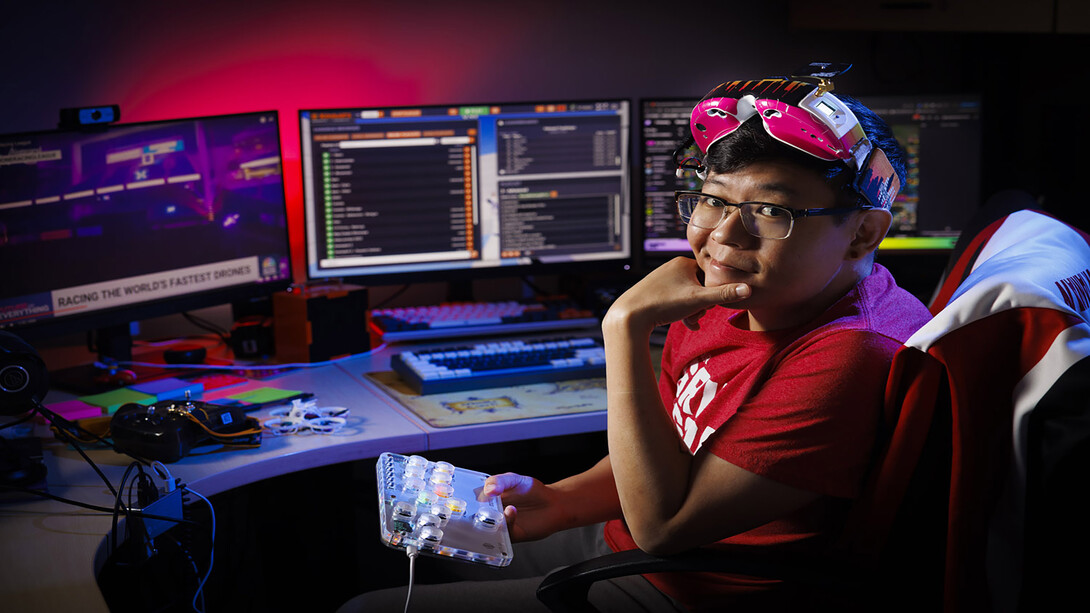
At a university where traditional sports are such a big deal, Ryan Tan is taking a decidedly different path, exploring the potential of esports and gaming to teach people not just play, but how to transform their work.
Esports, short for “electronic sports,” transform online gaming into a spectator sport. The experience is similar to watching a sporting event, except that spectators watch video gamers compete in a virtual environment.
Tan, assistant professor of sports media and communication, formerly worked in the video game industry until he had an epiphany of sorts that he’d rather make gaming a force for good than profit. His mission: to harness the skills people use in playing these games and apply them to work.
“I think play gets a bad rep. People associate play as the opposing force to work,” Tan said. "But humans learn many of the rules they’ll use the rest of their lives through play as children. People become comfortable with tools, rules, scenarios through play.”
Tan has a receptive audience among today’s college students, many of whom have been playing video games since toddlerhood. It helps, he says, that he looks like a college student himself, and his office has a full window that overlooks an open space in Andersen Hall, home to the College of Journalism and Mass Communications.
“Students walk by this window and see all this stuff I’m working on. This window is bait. I want students to think Professor Ryan just teaches fun (stuff),” he said. “Under the guise of play, I want them to begin developing structure and scaffolding that informs a way they engage with work.”
Drone racing is one example: Players are virtually in a cockpit, where they learn and exercise skills that can have many industrial and commercial applications.
It’s a new field, and Tan acknowledges he and other advocates are still navigating how to talk about it without sounding privileged. But he’s a believer.
“How do we move society in a direction where everybody enjoys life a little bit more, while still being productive and contributing to society? I think that direction is based in play," Tan said. "I’m hoping my research will help close that gap.”
This story was included in the Office of Research and Economic Development’s annual report. View the full report here.







